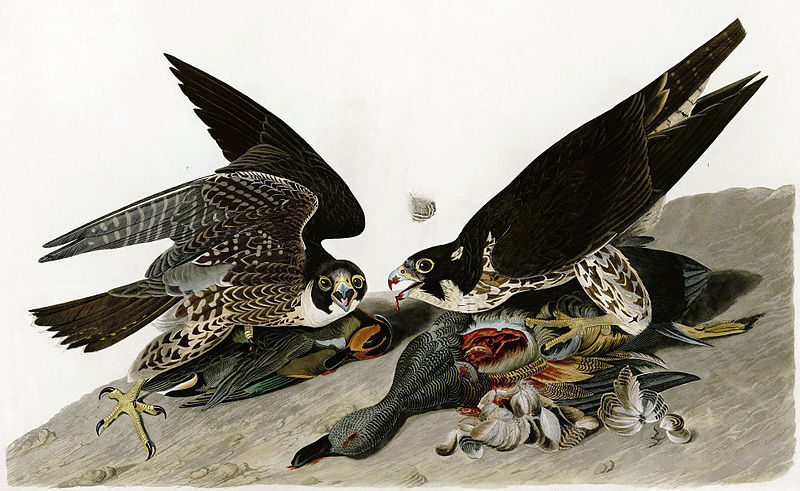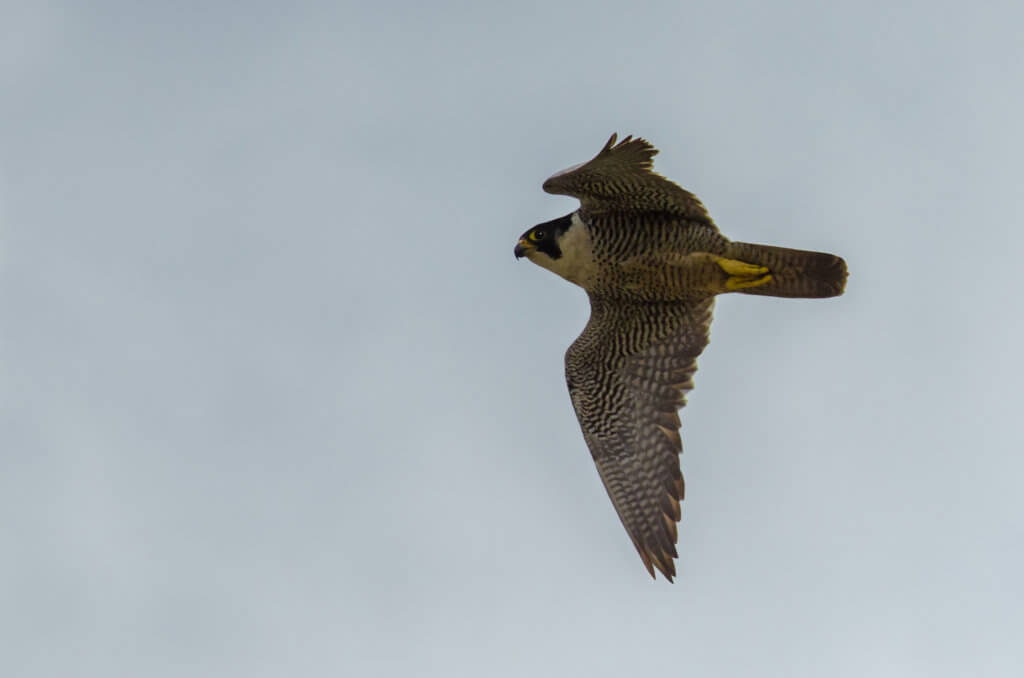
The results of the 2014 Peregrine survey are now published (not very quickly).
It’s good to see the detail although the overview results have been available for quite a while. Peregrines have done well in the lowlands and badly in the uplands.
We already know (since 2011) at an even finer grain, for northern England, that within the uplands Peregrines do much better on moorlands not managed for grouse shooting than those that are – although the minister hasn’t seemed to assimilate this evidence.
Sometimes I wonder whether we, including myself, bang on about Hen Harriers just a little too much. If persecution of Hen Harriers ceased tomorrow, of which there is no sign, then there would still be plenty of wildlife crime associated with grouse moors. Peregrines, Red Kites, Short-eared Owls, Goshawks and even the Buzzard are victims on the grouse moors. Nothing in Defra’s Hen Harrier inaction Plan is a solution for other birds of prey. After all, as well as being a completely inadequate plan for Hen Harriers, it is no plan at all for wildlife crime associated with intensive grouse shooting.
Remember that when Hen Harriers were being fed at Langholm the finger of blame, despite any real evidence that I have seen so far, was pointed at Buzzards.
You risk your life if you are a Goshawk nesting in a plantation next to a grouse moor too.
There is no feasible solution to the conflict between intensive grouse moor management and wildlife because many raptors will eat Red Grouse at times, and the grouse shooting industry is greedy and out of any control.
No, we won’t see a proper recovery in Peregrine numbers until we put an end to driven grouse shooting – and you can help do that by signing here.

[registration_form]
We should keep banging on about Hen Harriers. The larger story, not only about persecution of other birds but about our uplands more generally, is harder to tell. Not to set it aside, but at any rate we should recognise that it faces powerful cultural memes and people with the money to exploit them. They will lose in the end, their emperor clothes will drop off but that can feel very long term. Meanwhile the arrogance – and near success – of the criminal attempts to exterminate this wonderful bird from England must be the driver. We will win quicker this way.
I agree, the Hen Harrier is the flag bearer for all the birds of prey that are exterminated on our grouse moors by people with guns breaking the laws of this land.
I can’t help thinking that although, as you rightly say, the HH is our standard bearer, the bird doesn’t mean much to non birders.
I believe that if more was said in the media about the killing of owls, or Golden Eagles, then far more non birders would get on board.
The British are a race of animal lovers, to tell them that our stoats, weasels, frogs, Ravens etc are being wiped out by the rich for a bloodsport, would I believe have far more impact than ‘banging on’ about a bird that only birders have heard of.
Justification for that thought? Well a good example would be the new e petition set up and promoted by IFAW, to ban puppy sales by anyone other than a registered breeder. It’s already got 46,000 signatures and only been going a week.
I’m not saying that killing Golden eagles would have the same impact as puppies, only that far more people have heard of them.
If the HH days were called ‘stop the rich killing our wildlife’ day, would more people turn out? I believe they would.
As I’ve said previously, the government are happy that ONLY 123k people are interested in this, that’s a figure they are happy to live with. Put another zero on the end of that figure and they would have a real problem. And for that, we need something more emotive, something that stirs non birders to action.
All birds of prey are equally important although iconic species will always engage the public, and in Scotland the government, more.
We need to concentrate on the Hen Harrier because of legalized brood persecution and the equally ridiculous lowland introduction. But the major flaw in the HHAP apart from the ethics is that it ignores all other birds of prey. We have been caught in a trap not of our making. The HHAP is forcing us to focus too much on Hen Harriers.
IF there was an evil mastermind with a plan to encourage the continuation of raptor crime, they couldn’t have come up with anything better.
Having said all that i can’t see a way out of this mobius strip apart from first stopping the most controversial aspects of the HHAP.
There will be a nine minute feature on peregrines in rural Derbyshire (in the White Peak) where they suffer badly from chick theft on BBC 1 East Midlands Inside Out programme at 7.30pm this coming Monday (12th). Mike Dilger is the presenter and Derbyshire Wildlife Trust the main organisation featured. Comparison is made with the pair nesting on derby Cathedral where fledging success is very high.
If you are not in that region, shortly after you will be able to watch it on iplayer wherever you are (in the UK).
All good comments, I think. Mark is correct, other raptors (and predators) are overlooked, but mostly by Natural England.
Their argument at the Public Inquiry into the Oxford – Bicester railway line, and the rare colony of bats in Wolvercote tunnel, was that “in the wider scheme of things it didn’t matter if these bats were wiped out”. Meaning, it would hardly register on the overall UK bat population. That is what they told the Inspector. (Of course it mattered to me, because they were almost all of our local bats, and I claimed that a colony of 13 different species – according to Network Rail’s ecologist – was rare. But the Inspector said that Natural England were the statutory authority and he could not over-rule them.)
That is probably the (so far, private) view of Natural England on other raptors on grouse moors, but they cannot ascribe that view to Hen Harriers (because there are so few of them in England).